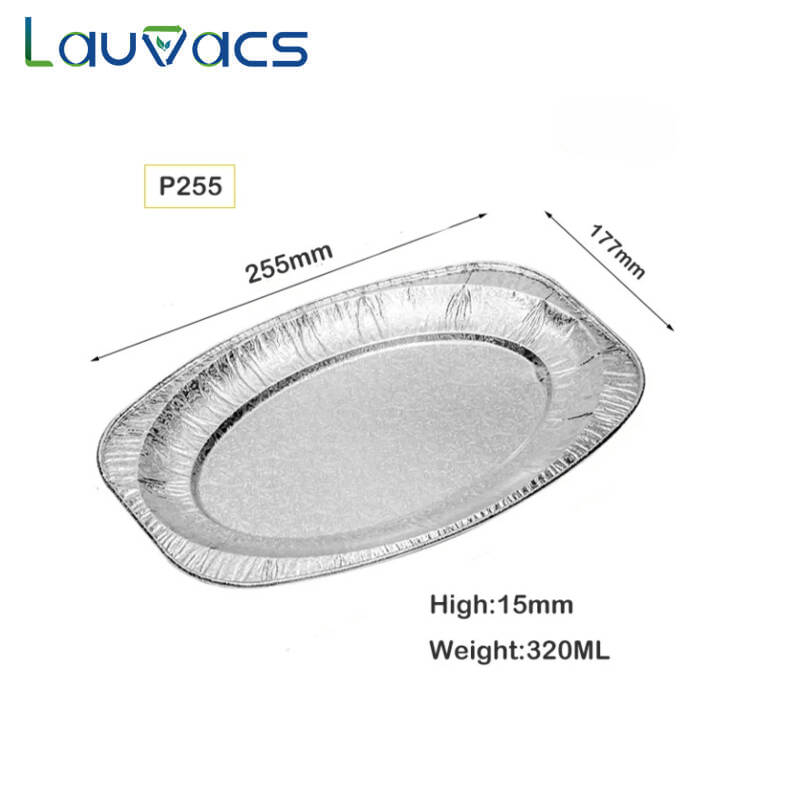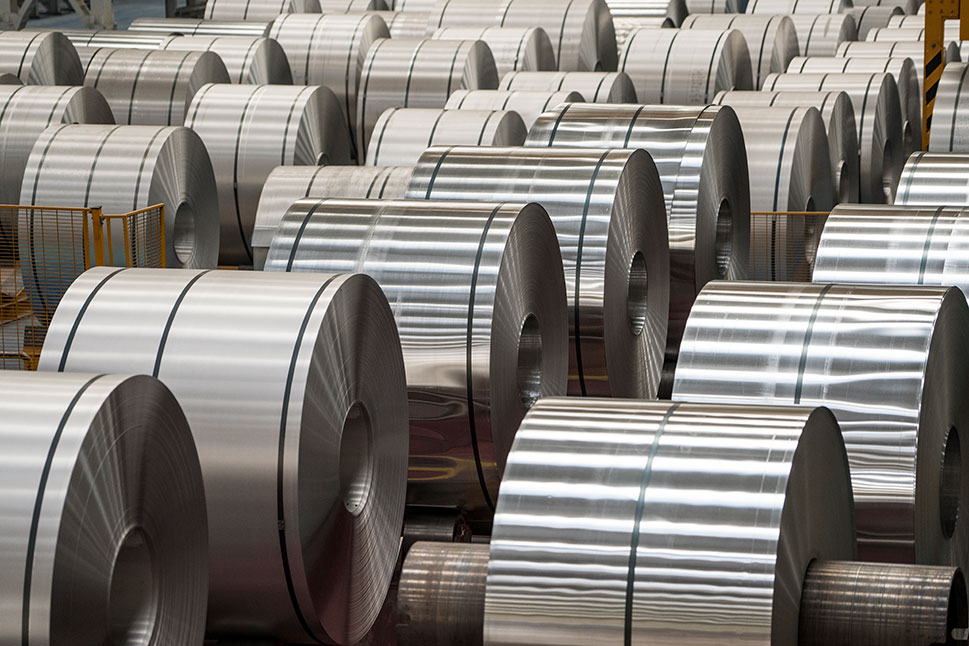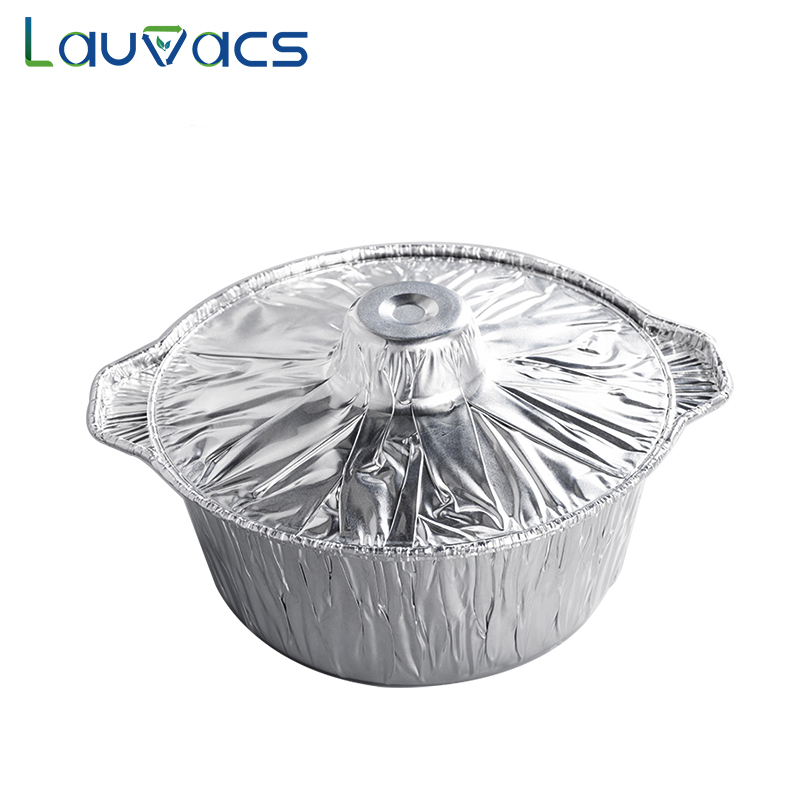Comprehensive Guide to Aluminum Foil Pans for Food Packaging Wholesalers
I. Understanding Aluminum Foil Pans

1.1 Core Definition & Industrial Significance
Aluminum foil pans (food-grade disposable cookware) represent precision-engineered containers crafted from 0.03mm-0.2mm thick aluminum alloy sheets. Unlike generic metal containers, these pans undergo strict ASTM B479 compliance for direct food contact applications. The global market reached $3.2B in 2024 (Grand View Research), driven by the shift from plastic to sustainable packaging in commercial food services.
1.2 Material Evolution Timeline
- 1910: First commercial aluminum foil production (Switzerland)
- 1954: FDA approves aluminum for food contact (21 CFR §175.300)
- 2008: China becomes world's largest producer (IAI data)
- 2022: 68% of US food trucks adopt foil pans for onsite cooking
II. Technical Specifications Breakdown

2.1 Alloy Composition & Food Safety
| Alloy Type |
Composition |
Best For |
| 8011-H24 |
Al(98.7%), Fe(1.0%), Si(0.3%) |
High-temperature roasting |
| 1235-O |
Al(99.35%), Fe(0.65%) |
Freezer-to-oven transitions |
| 3003-H14 |
Mn(1.2%), Cu(0.1%) |
Heavy-duty catering trays |
All materials meet EU Regulation 1935/2004 and FDA standards for heavy metal limits (Pb<0.01%, Cd<0.002%).
2.2 Performance Advantages
- Thermal: Withstands -40°C to 250°C (proven in NASA space food tests)
- Structural: 30% higher dent resistance vs. PET containers
- Sustainability: 95% recyclability rate vs. 9% for plastic (EPA 2023)
III. Product Line Configuration

3.1 Commercial-Grade Variants
- Deep Rectangular Pans (6700ml capacity):
- Applications: Bulk meal prep, sous-vide cooking
- Customizable rim types: Curled edge (for sealing) vs. flat edge (nesting)
- Oval Roasting Trays:
- 14-gauge thickness for whole poultry/meat
- Non-stick coating options: Ceramic vs. PTFE
- Modular Serving Series:
- 3-compartment trays with steam vents
- Stackable design (up to 50 units palletized)
3.2 Specialized Industry Solutions
- Airline Catering: 160mm round pans with tamper-evident lids
- Bakery Chains: Perforated sheets for even croissant baking
- Meal Kit Providers: Portion-controlled 500ml trays
IV. Manufacturing Insights
.jpg)
4.1 Production Workflow
- Coil Slitting: Jumbo coils → 1600mm width strips
- Blanking: 800-ton presses create pan blanks
- Deep Drawing: 3-stage forming for complex shapes
- Edge Treatment: Beading/Crimping for structural integrity
- QC Checks: X-ray detection + water leakage tests
4.2 Cost Drivers Analysis
| Factor |
Impact on Pricing |
| Thickness variance (0.03mm-0.2mm) |
±$0.008/unit |
| Custom tooling (mold cost) |
3,500−3,500−15,000 |
| MOQ requirements |
20% discount at 100,000+ units |
V. Strategic Sourcing from China
5.1 Compliance Checklist
- Mandatory Certifications: ISO 22000, BRCGS Packaging
- Shipping Prep: Desiccant packets + humidity indicator cards
- Duty Considerations: 6.5% import tax (HS 761290) with ASEAN FTA benefits
5.2 Supplier Vetting Protocol
- Audit 3+ active production lines
- Verify melt logs for alloy consistency
- Test 3rd-party SGS reports (esp. for EU REACH)
- Inspect in-house R&D capabilities
Pro Tip: Partner with manufacturers holding SMETA 4-pillar certifications for ethical sourcing compliance.
VI. Market Differentiation Tactics

6.1 Value-Added Services
- Private Labeling: Hot-stamped logos withstand 200°C
- Inventory Management: JIT delivery within 72hrs
- Technical Support: HACCP-compliant usage guidelines
6.2 Emerging Trends
- Smart Packaging: Integration with RFID for cold transportation chain
- Green Alloys: 30% recycled content options
- Shape Innovation: Collapsible designs for storage efficiency



.jpg)
